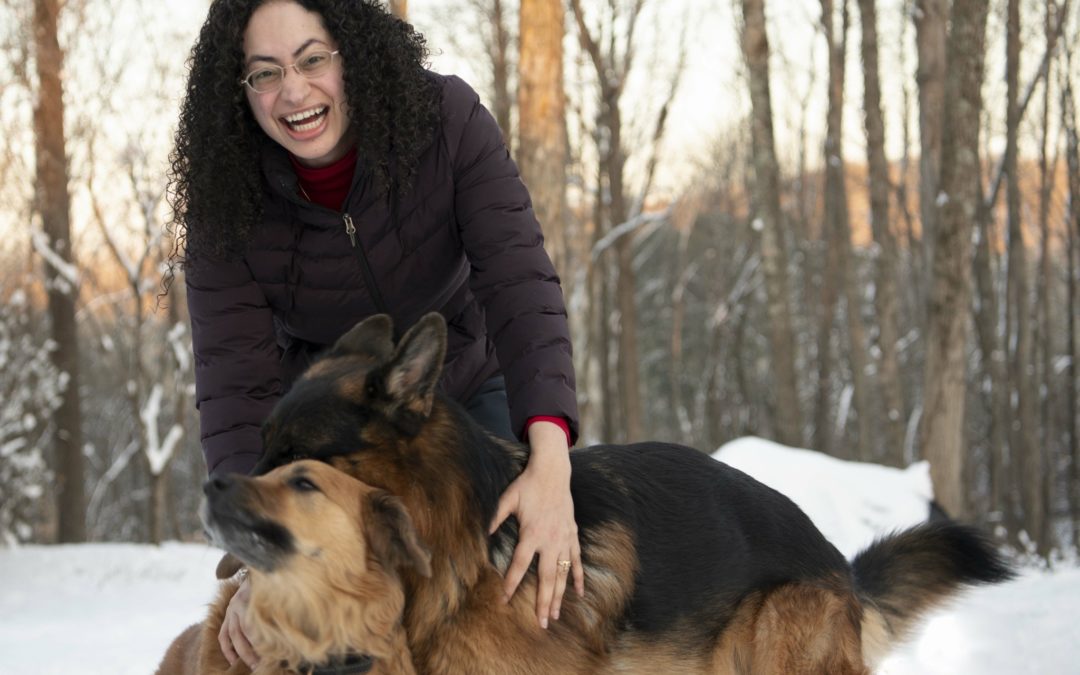Playing with my dogs on a snowy day.
“Dogs remind us of a fundamental wisdom that often eludes us in our self-preoccupation. More than anything else, dogs are creatures of play, whose spontaneous interaction with life bespeaks its goodness.”
—The Monks of New Skete
As a preventive cardiologist, I write a lot about stress management, because stress is an underlying factor that contributes to so much of the heart disease we see, as well as to risk factors for cardiovascular disease, like high blood pressure.
One of the best ways to relieve stress is to play—and one of the best ways to play is with your dog!
To that end, I’m delighted to bring you this interview I did with professional dog trainer Marc Goldberg, who is past president of the International Association of Canine Professionals (IACP) and has been inducted into their Hall of Fame.
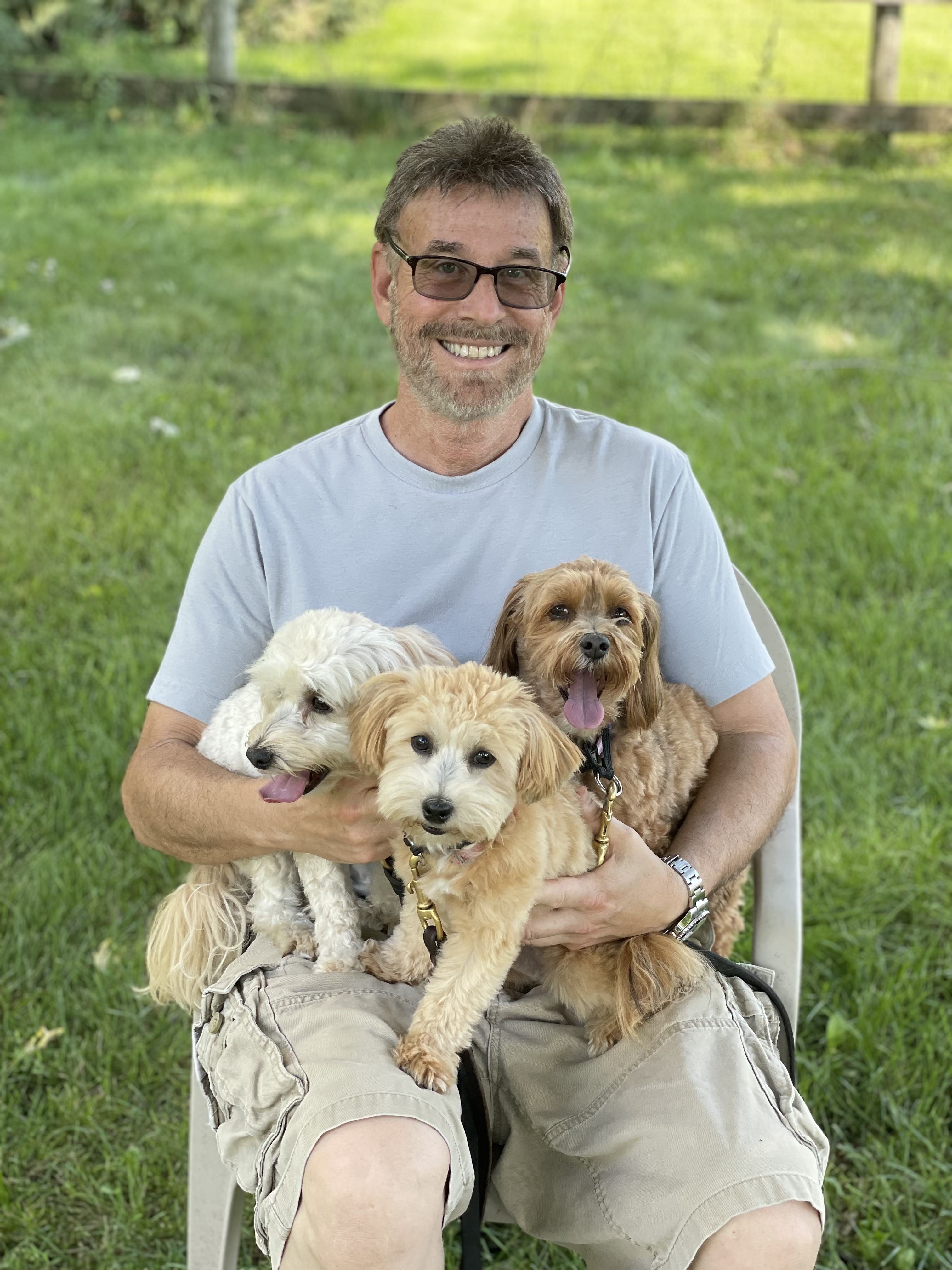
Professional dog trainer and author, Marc Goldberg.
Goldberg has also coauthored a series of dog-training books with the Monks of New Skete. As a dog lover and dog handler myself, I have read all of their collaborations, and I believe their latest book, The Joy of Playing with Your Dog, is the best one yet.
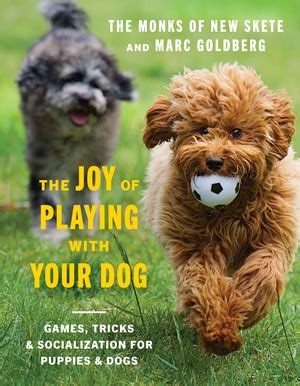
In The Joy of Playing with Your Dog, Goldberg and the Monks of New Skete cover so many topics of practical use for dog owners—all of them designed to strengthen your bond with your dog. This book will teach you how to play with your dog in a purposeful way. They even have ideas for rainy-day games and playing indoors with your dog when the weather is too hot or too cold to play outside!
As the authors point out in the introduction to their new book, “We intend this book to open your mind to a new reality: that, when done in a specific manner, play can not only be joyful but it can also be educational for your dog, leading to better behavior. Trust us when we say that better behavior and more productive time dedicated to your dog will not only make him happy, but it will make you happy too.”
I’ve spent 14 years becoming a better dog handler for the sake of my dogs (and for the sake of my health and sanity), and I wish I had had this book 14 years ago when I first began my dog-owning journey. I can’t recommend it highly enough.
So, without further ado, here are the questions I put to Goldberg, with his answers:
_________________________________________________________________________________________
Why is play so important for our dogs (and for their health)?
MG: Dogs first learn to play within the litter. Play is how they learn to consider others beside themselves. One example is that in their early days with their siblings, they learn bite inhibition. The desire—and need—to express themselves through play continues well into adulthood.
Should we be scheduling time to play with our dogs every day? How do we do that, especially if we lead busy lives?
MG: All you need is the perfect 15 minutes. In the book, we give you a host of ways you can engage with your dog for only that brief time, yet still accomplish the benefits of mind/body diversion.
What about the dogs who may not seem to want to play “traditional” games, like fetch? What games did you play with your rat terrier, Scooter, until that miraculous moment you describe in the book, with her “soulmate toy” at the age of 10?
MG: First, you cannot force a dog to play, but indeed you can carefully tap into drives the dog herself might not even realize she had. Scooter did come to love that soulmate toy of hers, but what truly made a difference in her life was allowing her to be a terrier.
When she was young, we lived in a subdivision house with a very small yard that was half patio. And to be kind, Scooter was troublesome. She invented her own games such as nipping my Doberman when he wasn’t looking. But once we moved to our Little Dog Farm, she became much easier to live with. That’s because she could search the entire property for critters, and as we discuss in the book, the sense of smell and nose games appeal to many dogs with her genetic makeup. The trick was to teach Scooter to come when called, even if she had her nose down a hole. Once we had that skill in place, she became a much happier and easier dog.
Enjoying this article? Get more fun stories delivered to your inbox–subscribe for free to my Positive Vibes newsletter, and get a free e-book!
You have a whole chapter devoted to “Teaching Tricks with a Purpose.” Can you comment briefly on what you mean by that?
MG: As dog trainers, the Monks of New Skete and I too often see that owners play games with their dogs that accidentally teach the wrong lessons. Riling up the dog seems to be the favored game for many people. Quickly the dog becomes wild and the owner scolds.
The concept of purposeful tricks is intended to help dogs learn useful and fun skills that simultaneously help them learn focus. Trick training is fun for many dogs, but too often owners over-hype the dogs into an anxious state of mind when teaching tricks. So we present an approach that keeps the fun but which rewards thoughtfulness rather than overexcitement.
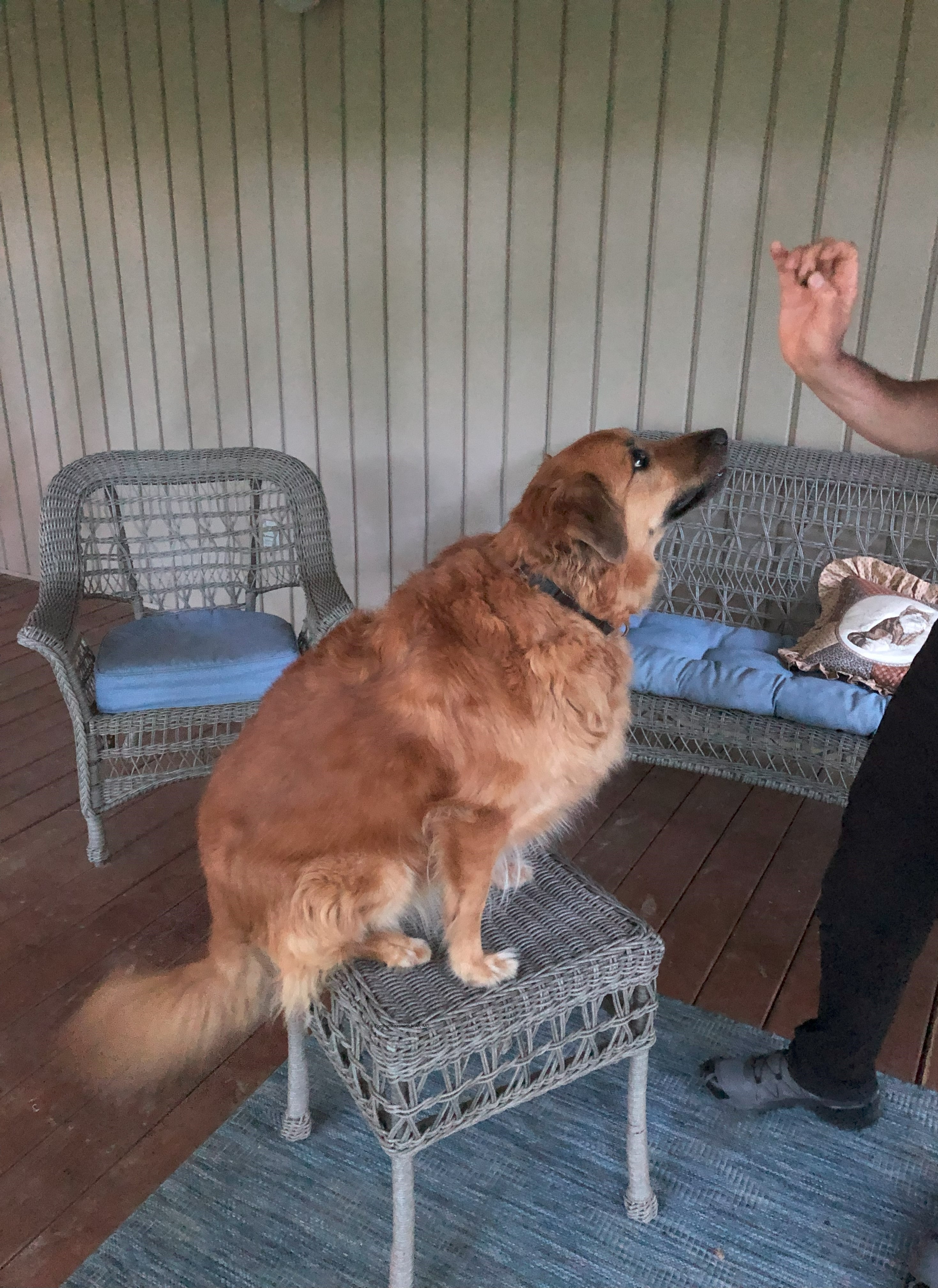
One of my dogs, who has the AKC Trick Dog Performer title.
How can play help with our dogs’ training and basic manners?
MG: Good play drains mental and physical energy. Unproductive play merely revs up the dog to the point where owners scold them or abruptly end the play. Remember, all good games have rules. Game-based learning, which is what The Joy of Playing with Your Dog is about, rewards good manners which are literally built into the games.
What about working dogs—do they need to play, too? The K-9s and farm dogs and hunting dogs, and even service dogs? Or is their work enough to keep them mentally and physically stimulated and satisfied?
MG: Although I do not claim the working dog as my primary expertise, I would point out that depending on the dog, many of them are taught the work through games. Typically the best drug-detection dogs have massive ball drive. During training, the target drugs are rubbed on or are hidden in their balls. “Find the drugs” is really a game of “find your ball” for the dog. Eventually, the dogs are taught that the ball or toy will come out AFTER they find the drugs. So in many instances, working dogs are playing a game their whole shift. Even protection dogs delight in taking the bite. The point is for the trainer to control that to appropriate times.
What do you hope dog owners will take away from this book?
MG: Dogs live to play and if we go about it correctly, we can teach them better behavior and reduce their frustration. The monks and I are convinced that dogs will even live longer and have better cognition when they are mentally stimulated.
What is your favorite game(s) to play with your dogs?
MG: My German Shepherd Friday loves to find her ball. She finds it a bit boring when she knows where I have thrown it. So I tend to throw it very far, using a ball launcher, when she is not looking. Friday will then conduct a scent pattern throughout my entire yard, well over an acre, until she has found it. She never fails. So to be honest, although there are other games I can play with her, this is the one she has picked out as her favorite. I indulge her because it makes her very happy, and allows her to relax once we’ve come inside the house.
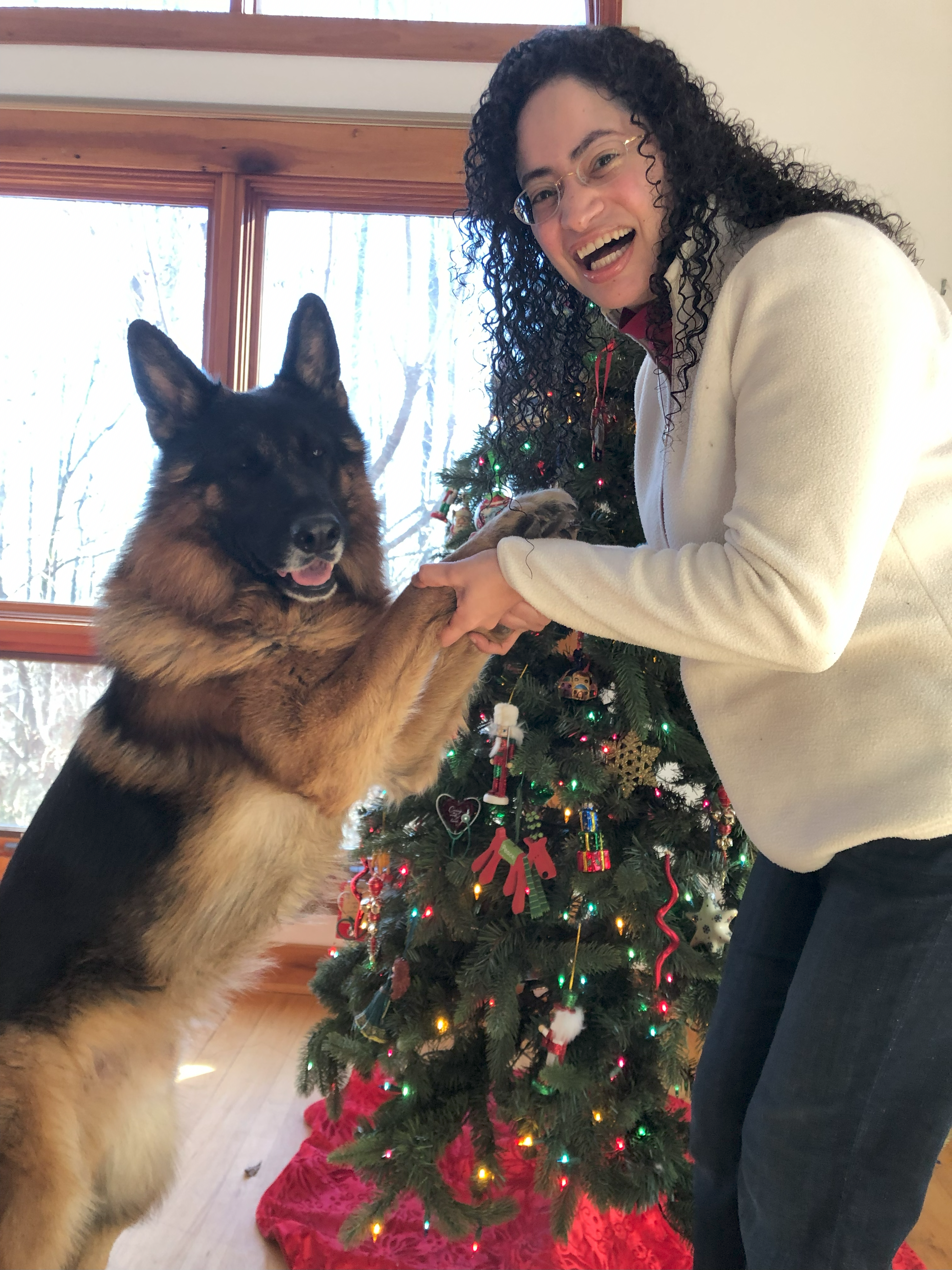
Goofing off with my late German Shepherd Dog, Wyatt, whom Goldberg helped me train.
“It is in the nature of a dog to express his joy of life at every possible moment. … For people, some days may be better than others, and although that may also be true of dogs, they sure do have more good days, especially when they have someone who will play with them.”
—The Monks of New Skete and Marc Goldberg,
The Joy of Playing with Your Dog
Learn more about how to live a happier life full of healthy optimism: subscribe to my newsletter, Positive Vibes!

You may also enjoy reading:

